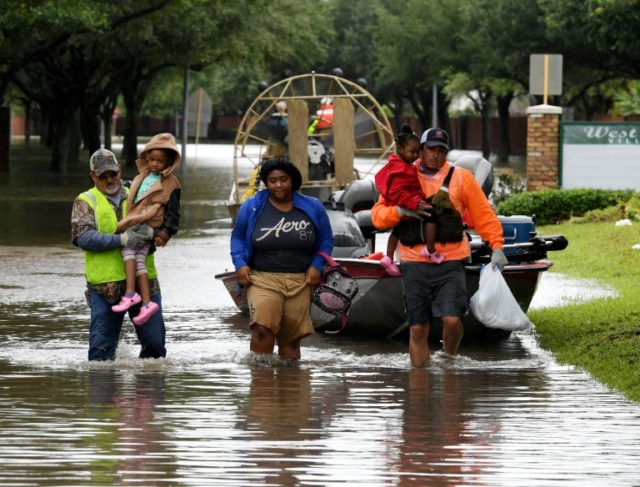Washington (AFP) – Hurricane Harvey’s devastation in Texas sent new claims for US jobless benefits skyrocketing last week to a two-year high, the Labor Department reported Thursday.
And the increase from the prior week was the largest in nearly five years, with claims for unemployment insurance in Texas alone rising more than four fold.
For the week ending September 2, new jobless claims surged by 62,000 to 298,000, seasonally adjusted, the highest level since April 2015 and far higher than forecast by economists, even though they predicted a jump.
It was the largest weekly increase since November 2012, when claims soared in the wake of Superstorm Sandy, which devastated the densely populated New York metropolitan area.
The Labor Department provided no estimate for the precise extent to which Harvey affected the weekly numbers. But claims in Texas jumped more than 400 percent for the week, climbing to 63,742 in the week after the storm from 12,105 the week before, although these state figures were not seasonally adjusted.
Damage estimates from Harvey, which made landfall on August 26, range from around $50 billion to well over $100 billion, making it among the costliest-ever US storms.
The Houston area is home to multinational corporations in the tech, energy and defense sectors. The storm also idled a large share of US oil and gas production and refining capacity.
Analysts say economic activity in the Gulf Coast region is likely to drop sharply in the wake of the storm before spiking during reconstruction efforts and then quickly reverting to prior trends.
Despite the jump in the latest week, initial jobless claims have held below 300,000 for two and a half years, the longest stretch since 1970. While claims can see big swings from week to week, the data can be used to gauge prevalence of layoffs and the health of labor markets.
The less volatile four-week moving average rose only 5.7 percent to 250,250 claims, matching a level recorded in April.

COMMENTS
Please let us know if you're having issues with commenting.